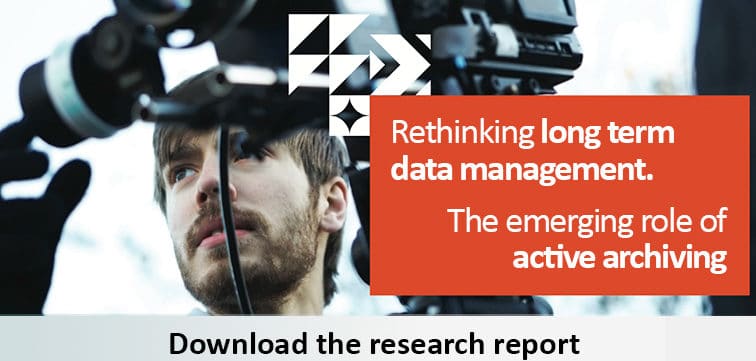The upcoming (Society of Motion Picture & Television Engineers) SMPTE 2017 Annual Technical Conference & Exhibition is all about the exploration of media and entertainment technology, and we’re thrilled to be one of the sponsors of the event where we’ll be showcasing how we are helping data thrive at every stage of the workflow.
This year’s symposium is titled “Artificial Intelligence (AI) and Machine Learning in Digital Media Creation: The Promise, The Reality, and The (Scary?) Future.” A perfect opportunity to talk to data scientist Yves Bergquist about the future of AI, its relationship to the media industry and what’s a data scientist to do.
AI vs. humans – what’s your take?
YB: We humans are inherently limited in how we know things. We actually know very little about the reality and the universe we live in: we’re bound by our cognitive limitations.
At a fundamental level AI (together with the explosion of available data) is a revolution in how humans know and understand ourselves and the world around us. We’ll very soon realize we know even less than we thought, and we’ll finally be able to explore the nature of reality and the universe. Actuarial Truth on steroids. Maybe we’ll meet God, who knows?
The point here is that people don’t realize that we’re going in the direction where machine intelligence and biological intelligence will merge into a hybrid. We’re already physically tethered to our phones, and search engines are essentially an extension of our brain.
we’re going in the direction where machine intelligence and biological intelligence will merge into a hybrid.
10 years from now the synthetic and the biological will have started to merge physically, and eventually there won’t be any difference between the two.
The future of AI – where will AI be in 10 years?
YB: AI will be inside our bodies and our brains, I am certain of it. We’ll also have a plethora of autonomous and intelligent systems, like self-driving cars and other transportation devices. We’ll have very intelligent and social AI companions, and most importantly we’ll have entirely autonomous AI companies that operate with little to no human input. My team and I are already building them: we’ve built a fully autonomous AI hedge fund that doesn’t have any humans in them. It’s doing well.
[Tweet “”Everything is #data, especially your mistakes” The Big 5 on #AI and #datascience”]What’s the role of AI in media & content creation?
YB: Here again it’s important to realize that the delineation between biological and synthetic intelligence is disappearing.
Right now, and for the next few years, they will remain separate but content creators will draw more and more upon AI-driven deep insights on audience affinities and areas where they can innovate in how they tell film stories. However, the white space between synthetic “creation decision aid” systems and our brains will narrow very quickly.
the most successful content creators are those who can “see” (great data and a great algorithm)
Right now the most successful content creators are those who can “see” (through a near-mystical process of intuition, which is actually just great data and a great algorithm) what audiences resonate with, the ones that will be successful tomorrow are those who know (also through great data and a great algorithm, but embedded in a hybrid biological-synthetic platform) what audiences vibe with.
When was the last time data proved you wrong?
YB: Everything is data, especially your mistakes. Mistakes are just bad or outdated data. And I don’t care how much data you have, for the time being you’ll only be “right” in a transient manner. Then you’ll be wrong again. Our data lags behind how our reality changes, that’s why we’re never right for long. Get used to it.
Our data lags behind how our reality changes, that’s why we’re never right for long.
Your tip to the starting data scientist?
Get as much math and domain-specific expertise as you can, and don’t focus on the computer skills, those are commoditized at this point. A lot of data scientists are engineers first and statisticians second, do the other way around. Get a neuroscience degree, that’s where a lot of AI innovation will come from. Also: I’m coming for ya. I’m building an AI data scientist, and so far it’s pretty amazing.
Learn more
Are you leveraging data to its fullest for your media business? It’s time to rethink long-term data management with the emerging role of active archiving. Download the report now.
 – – –
– – –
Yves Bergquist is a data scientist and founder and director of the “Data & Analytics” Project at University of Southern California’s Entertainment Technology Center, where his team helps the entertainment industry accelerate the deployment of next-generation audience intelligence standards and solutions.
Yves is also CEO of AI engineering firm Novamente, which builds neural-symbolic cognitive architectures to solve large-scale enterprise problems.
